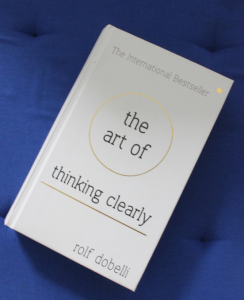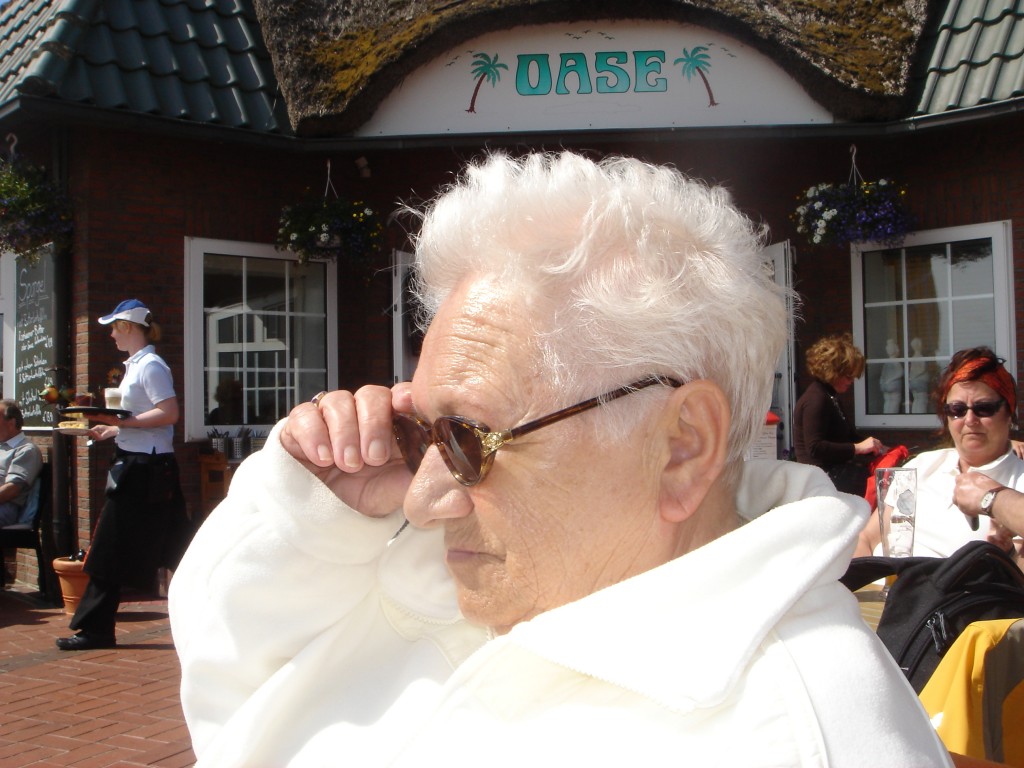Let´s be straight about this: book reviews are in most cases a form of advertisement. Just like many websites only exist, for the sole purpose to direct you to some content in order to cream off an affiliate commission for sending you there. Book reviews intend the same by making a potential reader interested (or by intention: the opposite) into buying a book
 This is why book reviews usually do not tell you very much about the actual book content nor the conclusions/resolutions of the writer´s thought process.
This is why book reviews usually do not tell you very much about the actual book content nor the conclusions/resolutions of the writer´s thought process.
My book review the art of thinking clearly by ralf dobelli is a bit different.
Lets start with the author. I had actually never heard of Rolf Dobelli before. One of my friends living in Germany recommended reading one of Dobelli´s books. He said that Dobelli was very popular in Germany recently and had made it onto some book bestseller lists.
I did a quick search on Amazon and randomly ordered one of his books and ended up with “the art of thinking clearly”.
The book is a quick read, actually I wouldn’t even describe it a real book in the regular sense. Thats the first problem: It is more like a LIST, than a real book (even though it has a book cover). A LIST ? Yes. Dobelli compiled a list of 99 – what he calls- cognitive biases or “thinking errors”. These 99 items are listed one after the other.
Well, we all know that lists are important in daily life: house wives use shopping lists so they don’t forget, what they wanted to buy (but then again, you always forget some items, because the most important product pops up while you are in the shower or jogging around lake Zurich).
So turning a simple list into a book, is already a bit daunting, or lets say Dobelli is testing his audience and wants to find out, what he can get away with.
(It reminds me of Tim Ferris 2nd book “the 4 Hour Body“ – but then again, Tim actually told everyone that he “compiled” the book for the sole reasons to prove a) he could “produce” a best-seller on -demand and b) make a lot of money with his compilation technique).
The good part : Dobelli condenses each cognitive bias into tight 2-3 pages so you just need a few hours to read the whole piece.
The disappointing part : I actually knew most of them already. (And I really don’t read many books, maybe I had just read the right/wrong ones.)
Whether one can classify these “thinking errors” as actual errors or whether they are just part of being a human being may be of some debate and a worthy question, which Dobelli can not or does not want to elaborate on.
So what are Dobellis conclusions ? The reader waits for the last 2-3 pages to find out that:
a) Dobelli, in his own daily life, just follows his instincts (so much for lists helping in daily life).
b) For big and important decisions though, he developed a “decision tree” based on his findings to guide him though his own thought process and help him make “better” decisions.
His “decision tree” could been something of interest and might be worth the price of the book, but then again: Dobelli disappoints once more: he doesn’t share it with his readers.
So when you finish Dobellis´s list of 99 thinking errors, you will not have found a real conclusion. When my spouse asked me what the book was about, I realized that I had already forgotten most of the “thinking errors”. Dobelli himself calls this the “recency effect” (the man actually has humor).
If, in any case, you are still interested in this topic, I recommend reading some of the original sources which cover 99% of Dobelli´s book:
• Daniel Kahnemann: Thinking, fast and slow
• Nassim Taleb: The Black Swan (and other books)
• Peter Gruber: Tell to Win
• Rolf F. Baumeister and John Tierney: WILLPOWER
• Robert Levine: A Geography of Time
If psychology is not your hobby, I suggest to avoid this book altogether. You wont find any unique new ideas, nor valuable conclusions of any kind.
Its just a list.
So in the end I agree with Nicholas Taleb who supposedly advised Dobelli not to publish this book under any circumstances ! Thanks Mr. Dobelli for sharing that piece of information with your readers in the “acknowledgements” section on page 313 (which by the way is the car license plate number of Donald Duck and may be of similar importance as the 99 errors).
Have your read the book ? Any thoughts on this book review the art of thinking clearly ?
Are you still interested in this topic ? Then you might as well read the list of “cognitive biases” on Wikipedia.












